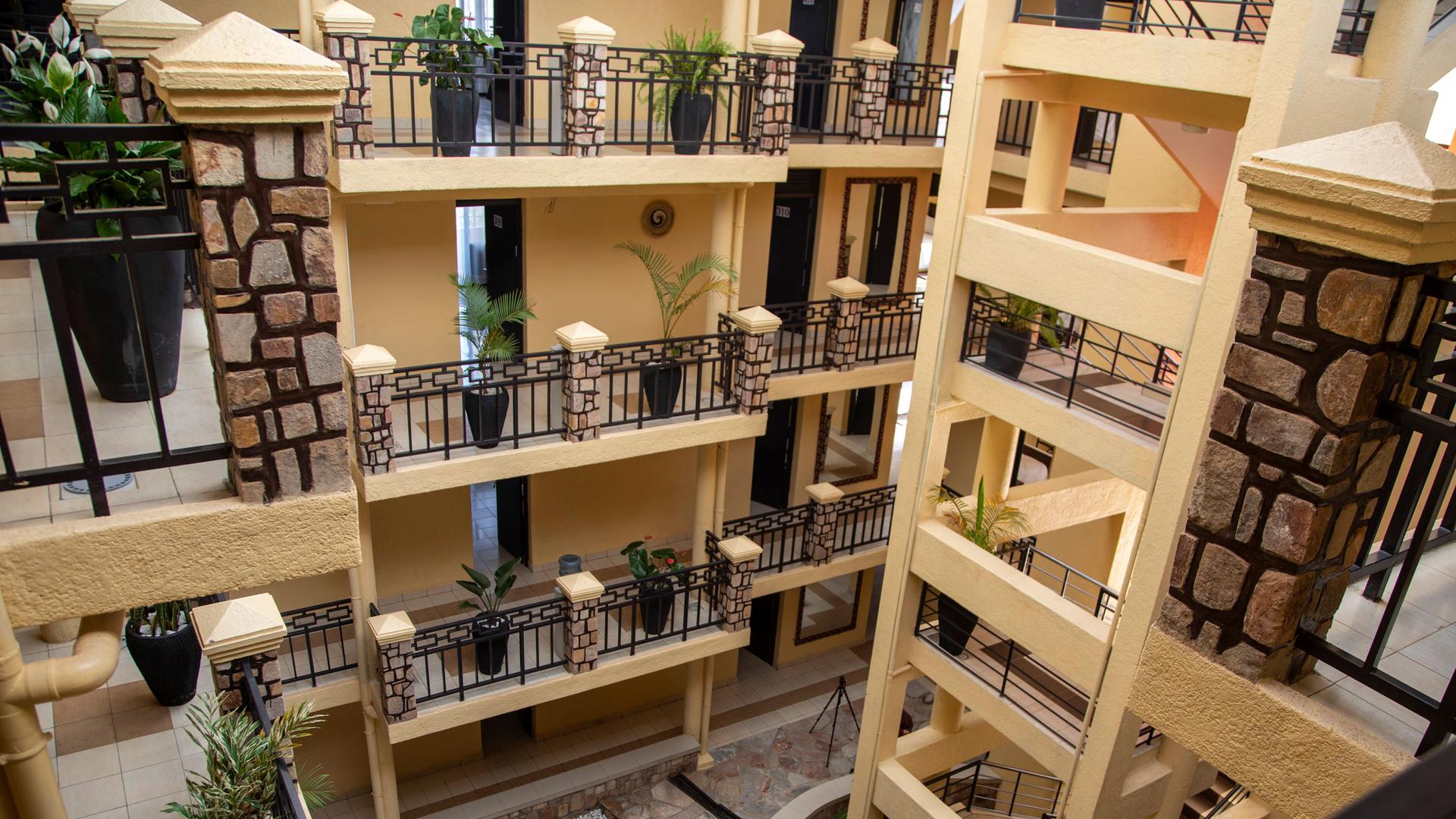‘At least there is peace here’: Rwandans weigh in on controversial migrant deal with UK
Djenny Mwizerwa was born a year after genocide in Rwanda claimed the lives of some 800,000 people — including some of Mwizerwa’s relatives.
Today, Mwizerwa believes that the United Kingdom’s plans to send asylum-seekers in Europe to Rwanda can help redeem the East African nation’s battered image.
“It is a country that’s developing so fast, first of all. We’ve been in bad times. They should come and see what we have accomplished in 28 years,” Mwizerwa said.
But the arrangement has proven controversial.
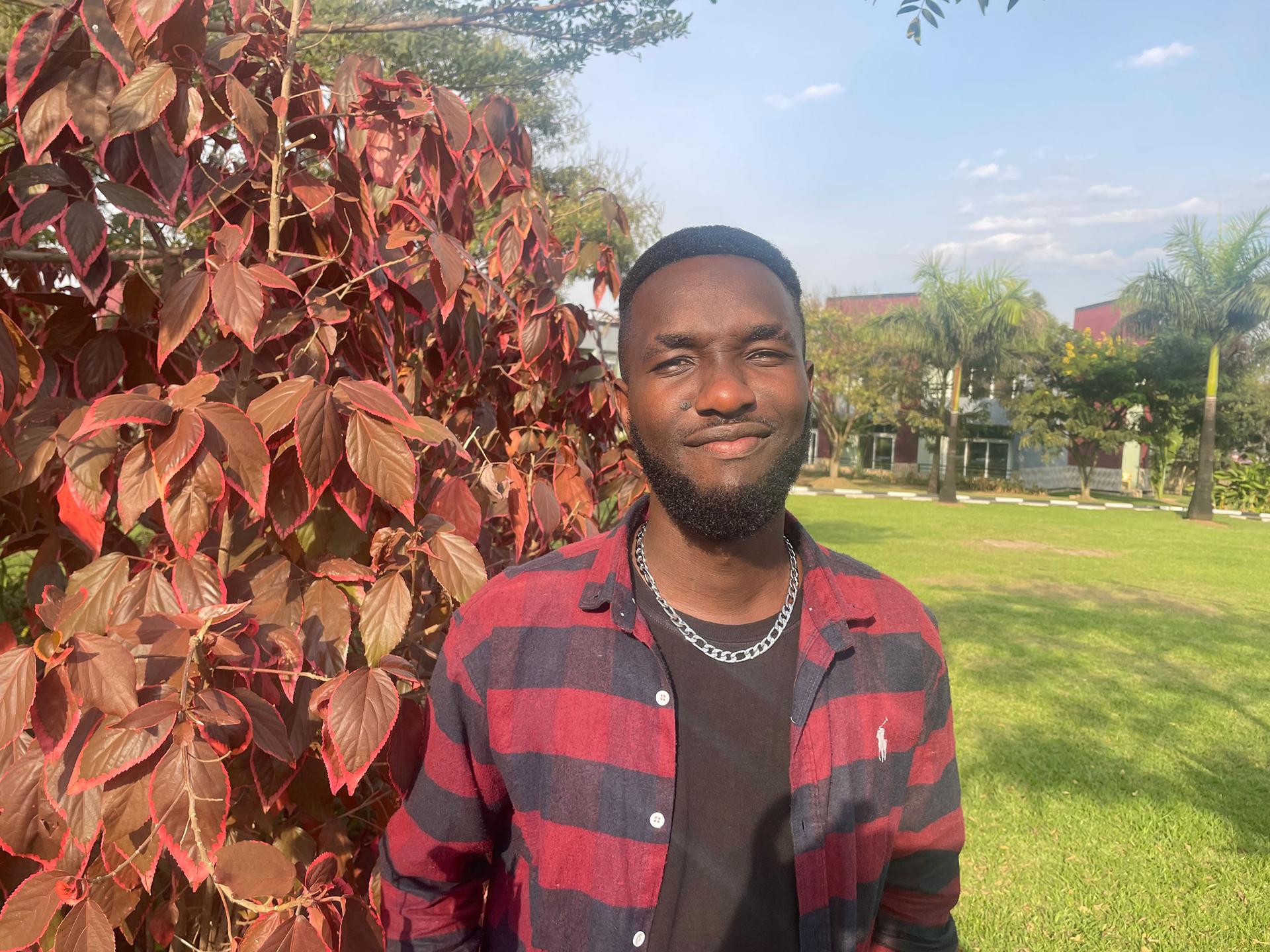
In April, Britain signed a $146 million deal with Rwanda to send asylum-seekers to Rwanda as part of efforts to curb illegal migration.
The deal states that refugees can either gain permanent refugee status to stay in the country or seek asylum in other developing countries.
However, the first chartered flight meant to carry asylum-seekers from the UK to Rwanda failed to take off on June 14 after a European human rights court granted an injunction to stop the deportation of at least seven asylum-seekers who were onboard.
The United Nations High Commissioner for Refugees and other human rights groups shot down the policy, citing breaches in laws meant to protect refugee rights in the UK.
Related: US begins mass deportations of Haitian migrants as Haiti calls for moratorium
‘Money is hard to come by’
Some Rwandans expressed worry that making a new life in Rwanda may be an impossible feat. Unemployment rates in Rwanda are five times higher than in the United Kingdom.
Small and landlocked, Rwanda is home to 13 million people, with about 70% who live as subsistence farmers.
Ruth Mugisha, a Burundian refugee, fled her country among some 200,000 people after political upheaval in 2016 led to widespread killings by security forces and armed opposition groups.
“At least there is peace here,” Mugisha said.
“No one is drawing knives and pointing guns at you. But you know, there is nowhere like home. Sometimes, money is hard to come by because you can’t even find any job to do. In Burundi, I was cooking and selling rice and stew so life was manageable,” she said.
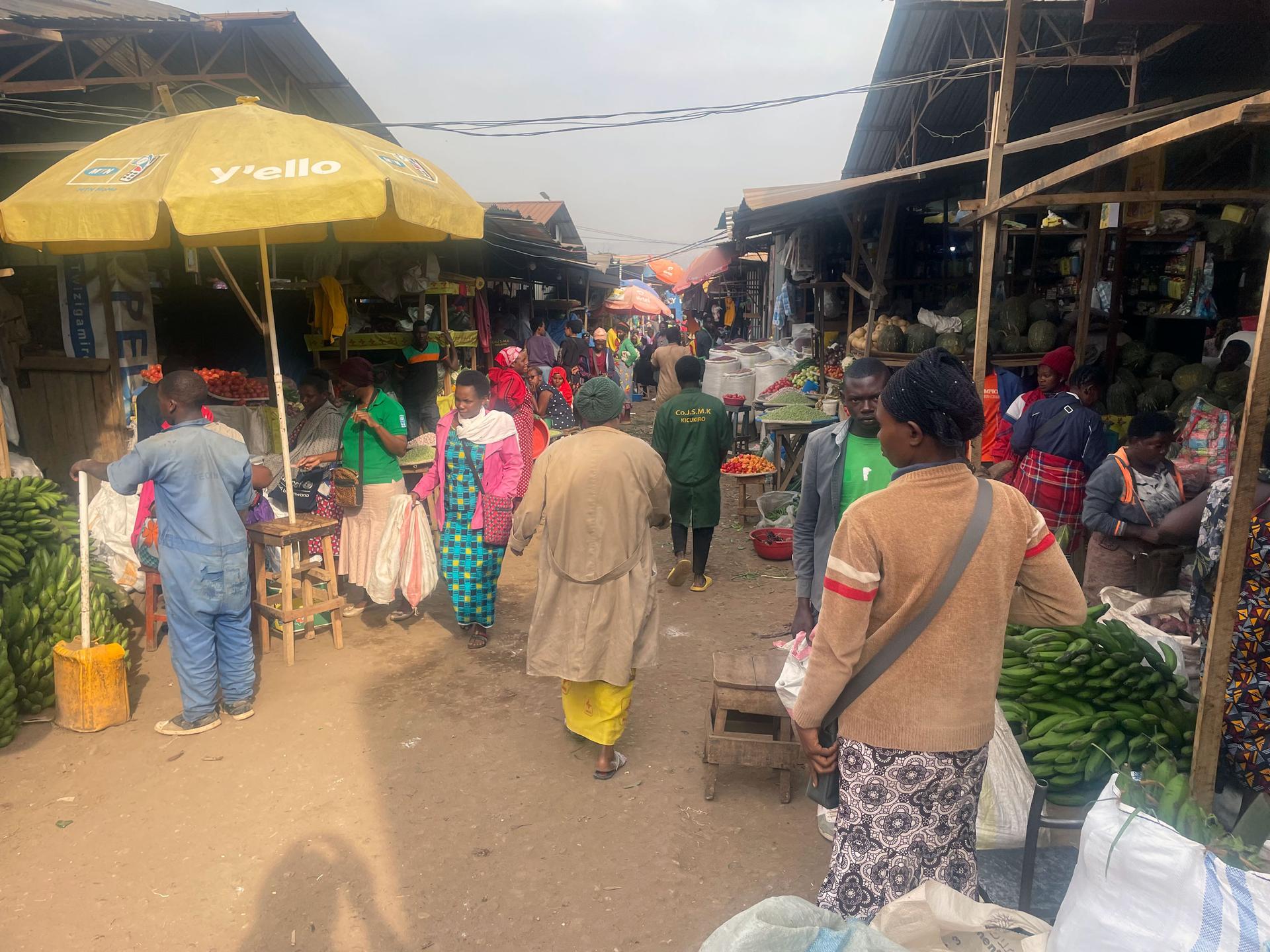
Rwanda’s youth unemployment rate was nearly 24% by the end of 2021, according to the country’s National Institute of Statistics.
The gross domestic product has gotten close to prepandemic levels, but the unemployment rate remains more than 13 percentage points above levels at the beginning of 2020.
Commercial motorcycle driver Simon Peter Twagirayezu shared Mugisha’s concerns.
“There are not enough jobs here for us, even the citizens,” he said while filling up at a gas station.
“My two sisters are at home. They are struggling to find something to do after finishing school. How are these migrants going to cope in this kind of situation? Things won’t be that easy,” he said.
A spotlight on human rights
The UK contends that Rwanda is a safe country for all refugees seeking asylum.
But some critics say that several human rights found in liberal democracies — like free speech — are noticeably absent in Rwanda.
International security expert Adib Saani doesn’t support the migrant deal due to concerns about Rwanda’s human rights record.
He worries that Rwanda is far from being a “free, just, equitable society” and that the country may not be able to guarantee basic human rights to refugees.
“Then, you can only expect inhumane treatment and that defeats the purpose of having to even repatriate them to Rwanda in the first place,” he said.
Human Rights Watch claims that serious human rights abuses continue in Rwanda, including suppression of free speech and arbitrary detention.
The organization has documented frequent attacks on freedom of speech, abuse of LGBTQ+ people, and the use of excessive force against refugees.
But Evariste Murwanashyaka, a program manager with an umbrella of human rights organizations in Rwanda, believes that the country is prepared to integrate refugees into Rwandan society.
“Rwanda will facilitate them to live as Rwandans. So, they will be reintegrated in Rwanda so that they can get jobs if they are available and they can actually compete with Rwandans,” he said.
The UK deal with Rwanda includes a five-year trial period.
A Kigali hostel, once built to shelter survivors of Rwanda’s 1994 genocide, is now set to to receive refugees from the UK.
“As a human rights organization, after visiting the place and seeing the conditions where they are going to live, we don’t think there will be any human rights violations,” Murwanashyaka said.
“Everything is inside — water, and other facilities. The location is also close to schools and hospitals.”
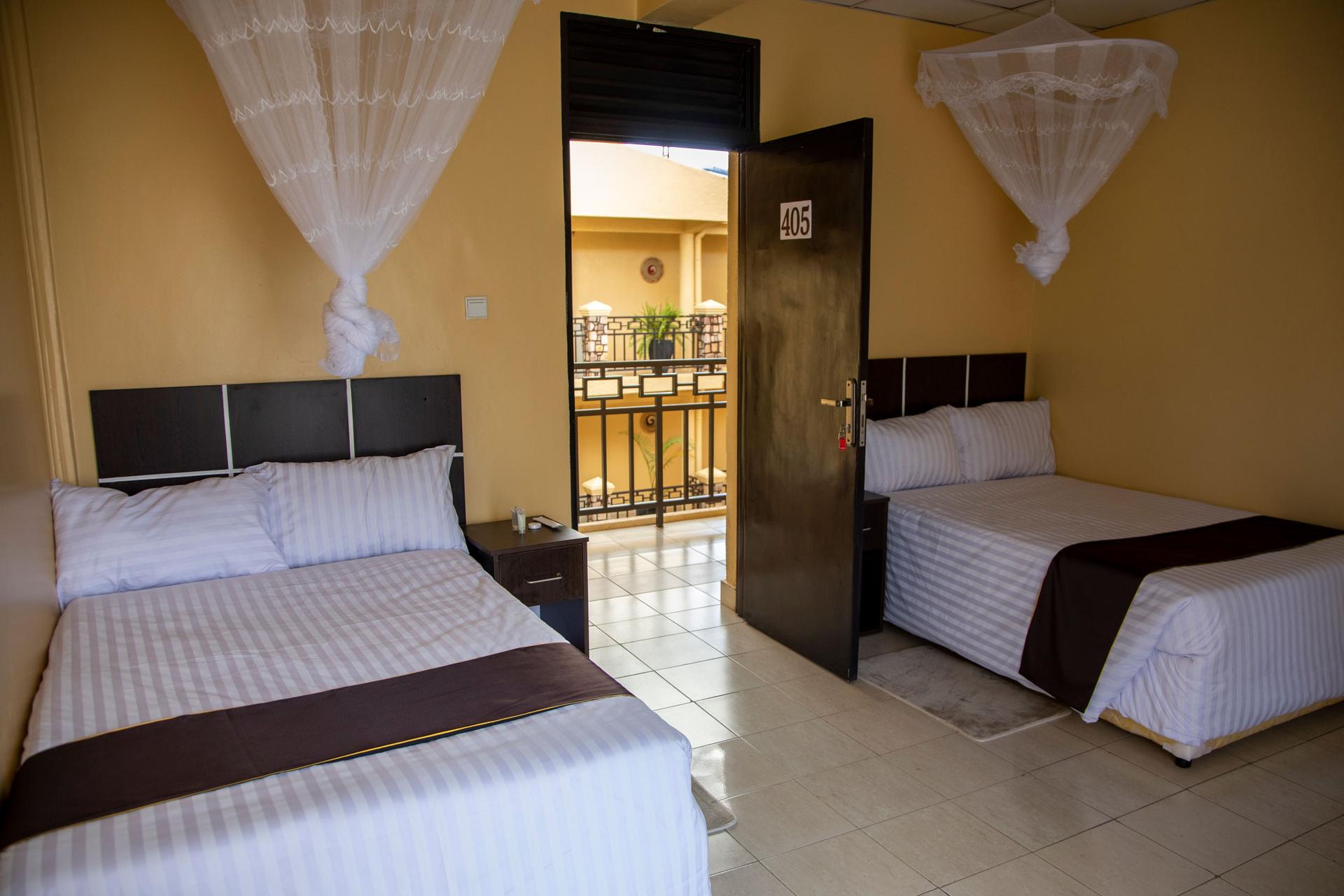
President Paul Kagame challenged those who question the country’s human rights credentials at a recent meeting of Commonwealth leaders.
“Those from the [‘Global North’] who always think they are the face of values, the rest have to follow; we have values, too. We here, in Rwanda, in Africa, we do. No question about it,” he said.
Rwanda, ready and waiting
Last year, nearly 30,000 people, mostly from the Middle East, East Africa and Afghanistan, crossed the English Channel in small boats — up from 8,404 in 2020.
UK Border Force union officials expect the total figure for 2022 to be much higher.
The UK insists that the deal with Rwanda will help tackle illegal migration from asylum-seekers who embark on dangerous treks across the English Channel to England from France.
Rwanda is already home to about 150,000 refugees from other African nations such as neighboring Burundi and the Democratic Republic of Congo.
It also accommodates some migrants who attempt to cross the Mediterranean Sea to Europe through Libya.
The government said it is ready to take in 1,000 asylum-seekers from the UK and also has the capacity for many more.
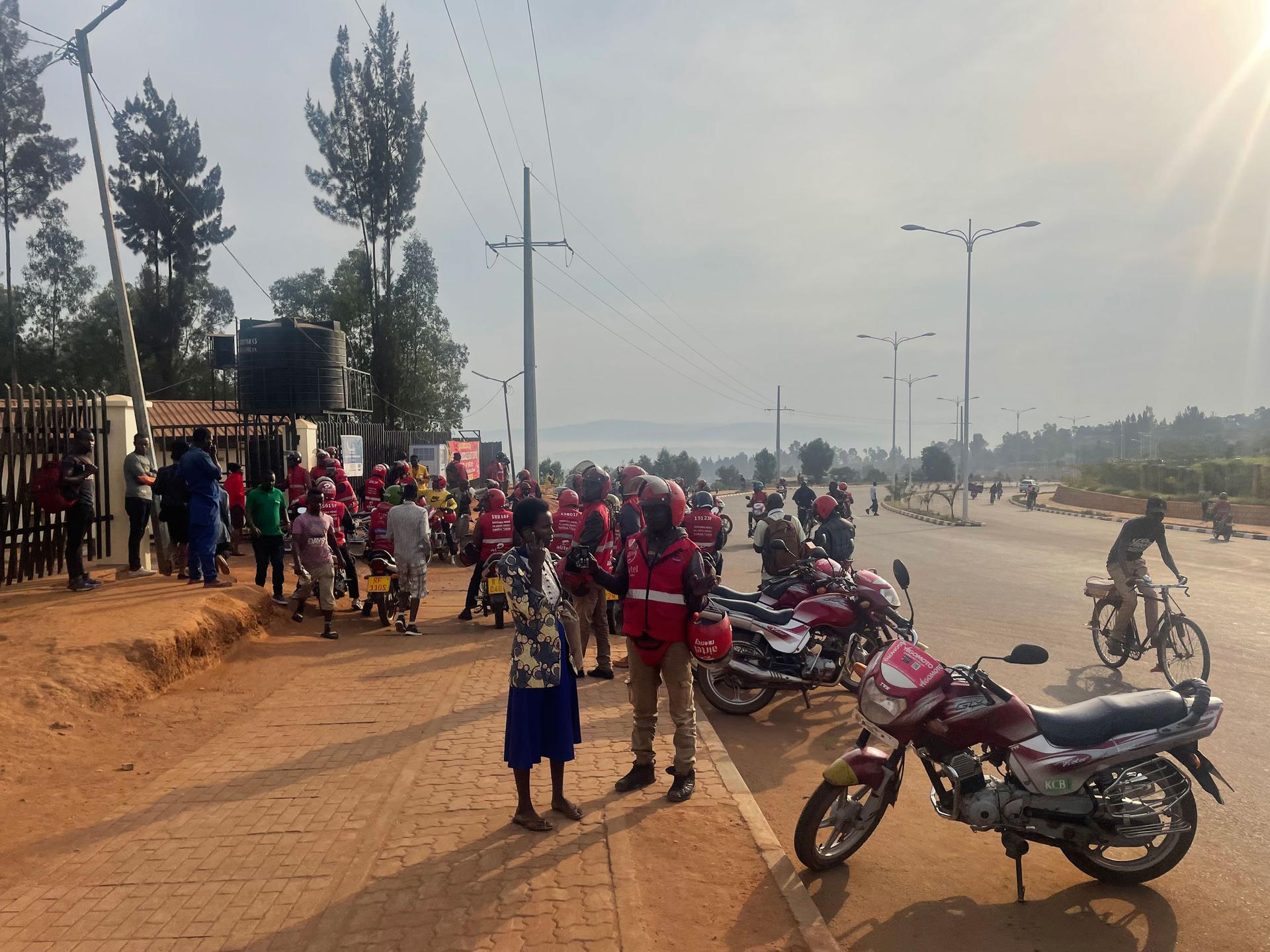
The UN’s refugee agency has serious misgivings about Rwanda’s capacity to manage new arrivals from the UK due to its lack of lawyers, case workers and interpreters.
After a European court blocked the first transfer of asylum-seekers, however, UK Prime Minister Boris Johnson said he’ll continue to pursue the deal.
The Supreme Court is set to hold a judicial review in July to decide on the legality of the scheme.
A recent opinion poll suggests the scheme has sharply divided the UK.
Of the 2,463 people surveyed, 44% backed the migrant deal — including 27% who strongly supported it. Meanwhile, 40% were opposed to it, with 28% who strongly opposed.
Some critics have also called the plan immoral and racist for shifting the UK’s responsibility to refugees onto Rwanda.
Meanwhile, Denmark also says it is in talks with Rwanda about setting up a new procedure for transferring asylum-seekers to the East African nation.
Back in Kigali, Mwizerwa said he hopes any refugee who comes to Rwanda will find love and comfort.
“We are ready to receive them. We are happy to have them here. I don’t even know why they are not here yet. Because we want them to come and see how beautiful this country is.”
